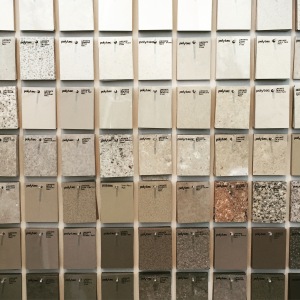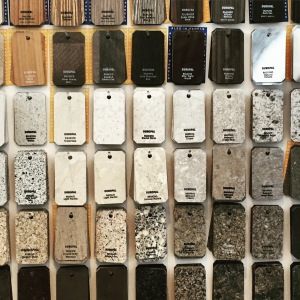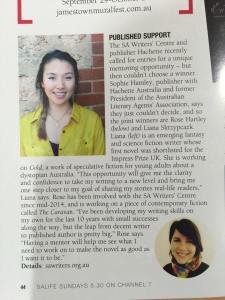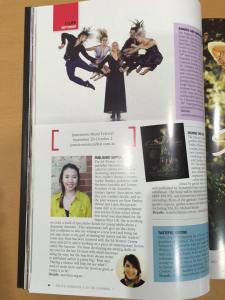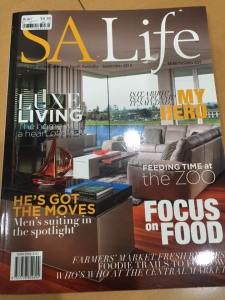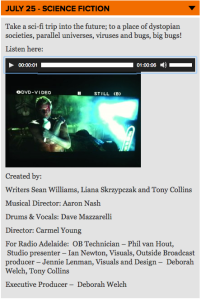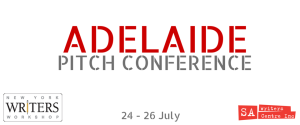In 2019, I was lucky enough to be chosen as the Kat Muscat Fellow, an annual award given by Express Media to a writer under the age of 30 to support an editorial project or work that embodies Kat’s legacy of feminism, defiance and empathy.
More information about the Fellowship here
I was also invited to speak at the Blue Breakfast, an annual breakfast in partnership with Beyond Blue to raise funds for the fellowship and to tackle stigma and discrimination and promote good mental health.
Blue Breakfast Speech
[Transcript]
My name is Liana Skrzypczak. I am adopted from Korea into a Polish-Australian family, hence the incredibly long and confusing last name. I want to stress that my writing has always been influenced by this mixed cultural heritage. AndThe Lore of Jeju, the project I have been working on with the assistance and support of this amazing fellowship, is no different.
The Lore of Jeju seemed ambitious on the outset. I wanted 1) an all-Korean 2) female cast, existing in a world where 2) sexual fluidity is the norm and where the 3) magic system was not based on the well worn paths of euro-centric mythology. Some would say ambitious, other would say stupid. But I believed all the above stated aims were incredibly important. And so I pushed ahead and began to consider how I might pull off this story.
I’d recently been inspired by the way writers like Naomi Alderman who wrote The Power managed to create a world where a female dominant power system was the norm. Other novels which manage to create their own micro-cultures within them were island novels like Scorpio Races by Maggie Stiefvater or Sea Hearts by Margo Lanagan. In these books, the literal boundaries of an island allowed the author to create societal rules and beliefs that pushed the readers conception of ‘normal’ in whichever direction the author wanted.
So, I began to look for likely island cultures on which to base my East-Asian, matriarchal, all-female, kick-ass cast on. And it didn’t take too long before I was reading all about the history of Jeju-do, a rugged volcanic island off the south coast of Korea, which, while known for its abundant waters and fertile soil, has a fascinating history. It was used for political prisoners during the Joseon Dynasty (1392 – 1910). It was the place of brutal mass killings of communist sympathisers in 1948 leading up to the Korean War. It’s where the infamous Haenyeo ‘sea-women’, free-divers of Jeju are famous for risking their lives to dive the rugged coastline without oxygen tanks in search of seafood to provide for their families. Jeju-do is known for its matriarchal legacy because of this.
So, I had my potential setting. Next, I needed an inciting incident: a profound circumstance that would drive the plot. I was dwelling on this problem on a 9-hour drive from Melbourne to Adelaide where my family lives and saw a fallen tree. It was the strangest shape, hollowed, looked like a piece of windswept driftwood. I began to think, driftwood –> Island –> imagine if the driftwood arrived on the island but was not a piece of driftwood at all but a vessel for carrying something… or someone. A person –> An exile –> A prisoner exiled on a one-way current to a treacherous island of women who’ve been exiled for the same thing. But what?
Murdering men? Yes, I thought. I can do something with that. Then, I thought, what if this particular piece of driftwood contained a man? The first to set foot on the island since its inception. What would happen to him?
So, this became the basis for my premise as follows:
On an island of women exiled for the crime of killing men, one of these women, Shin, wants nothing more than to escape and reap revenge for those who wronged her. When a Prince rocks up in a magic driftwood casket, exiled for pissing off his father, King Suro, the one responsible for the women’s exile, he must make a bid for his life. Will Shin be able to forgive Jae-Sun for the wrongdoings of the men who took away her people’s freedom? Will Jae-sun be able to prove that he’s not his father? Will they be able to conjure a plan of escape? Will they fight for a revolution? Together.
So already, I had a premise which involved two characters whose desires and beliefs are in direct opposition. But it quickly became apparent to me that this skeleton outline was missing a heartbeat. Which led me to my application for this fellowship, which involved money to fund a research trip to Jeju Island to visit the locations I had in mind for key scenes within the novel.
As soon as I set foot on the rugged volcanic coastline, I realised in all my research, I hadn’t even begun to scratch the surface of what Jeju has to offer. Everything I needed to embellish this brutal and beautiful world was right there in front of me.
Yes, I was that suspect tourist running around gathering all the sensory details one can’t get from online research. Yes, I was the one hanging off the side of a cliff just to get a photo of an interesting fungi growing from a rotting tree carcass. I spent an entire day in the Natural History Museum using google translate on my phone to decipher information on traditional earthwork, stone masonry, thatching, food culture, boat building, herbal medicine, flora, fauna everything there was to know about geography, geology, cosmology, weather, folk lore, clothing, music, customs etc. Yes, I was the one telling everyone to shush while I made voice memos of bird songs. My friend really thought I’d lost it when she turned to see me saying “Anyeonghaseyo!” to a nest of ants and asking them to identify themselves because I couldn’t find them in the guidebook.
I am a writer whose themes have always been deeply connected to setting and place. Without this fellowship, how would I have knownthe sheer force of buffeting winds on Mount Hallasan’s volcanic cone. The smell of rotting clumps of miyeok on the foreshore, or the specific cadence of the Haenyeo “Leyeo Leyeo Leyeodo Sana”work song.
How would I have come up with the saying: “She is suffering from a single cloud rain” to describe a passing sadness if I hadn’t experiencedthe Jeju phenomenon of a torrential downpour that lasts only handful of seconds?
How would I have come up with the saying: ‘She is like a splintered rice paddy in drought’ to describe the condition of ‘yearning’ for freedom if I didn’t see the effects of rice farming on the soil due to a lack of fresh water or irrigation options.
This fellowship allowed me to engage all five senses authentically and to ensure Shin-young’s story wasn’t a skeleton without a soul.
Thank you:
To Roz, Maddy and Michael—from the moment I met you at lunch just prior to embarking on my trip, your warmth, generosity and genuine passion for this project was invigorating. I can’t tell you how much it means to have that. And also, you guys give the best hugs. To the rest of the committee Tracy, Shawn, Elizabeth, Jo, Jessica, Zoe and the Express Media team Lucy, Beth, Ronnie, I know I have only met some of you, but I have heard of all of you and I feel as though I know you guys so well. Thank you for your tireless work in the arts community and for those of you at Express Media and the Wheelers Centre, thank you for running such amazing institutions.
To Beyond Blue—thank you for the work you do with changing stigmas around mental health in so many areas. From the arts, to, for example, education, which happens to be my day job. I recently attended a professional development workshop where one of your representatives left us with the timely reminder that: “Everyone has mental health needs. Mental health is a spectrum and we are all included in it.” Thank you for the work that you do.
Finally, I wanted to say thank you to Kat for founding a legacy of feminism, empathy and defiance—a mantra I am holding close while drafting this work. It’s a powerful thing to be able to ignite a community of creatives around important themes like these and I have felt that power around me from the momentthis fellowship was announced on social media by the Wheeler Centre. Immediately, I was flooded with support from writers I’ve admired, but whom I’ve never met. From agents and publishers who reached out and showed that these themes matter on a larger industry scale. And from readers who told me this is the kind of book they’ve been searching for. That the lack of books that contain narratives about powerful East-Asian women, representation of LGBT romances, and fantastic worlds of a non-eurocentric origin isn’t a niche frustration, but a shared feeling amongst many.

